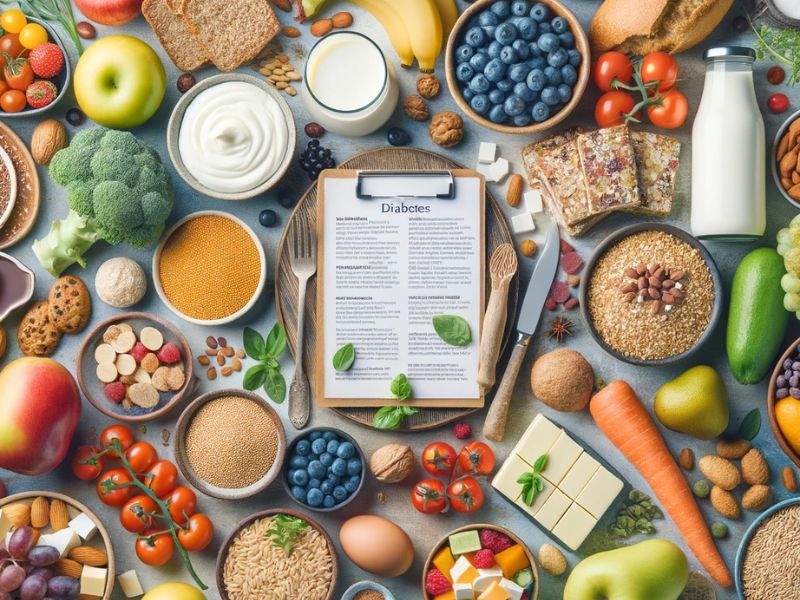
Nutrition and Diabetes: A Guide to a Balanced Diet
Discover which foods can help manage diabetes
The Importance of Diet in Diabetes Control
A proper diet is essential for managing diabetes. People with this condition need to be mindful of what they eat to keep their blood glucose levels within a healthy range. Choosing healthy foods, combined with regular physical activity, can help prevent spikes in blood sugar and reduce the risk of diabetes-related complications.
Recommended Foods
Recommended foods for individuals with diabetes include:
- Whole grains such as whole wheat, brown rice, barley, quinoa, and oats.
- Lean proteins such as lean meats, chicken, turkey, fish, eggs, nuts, beans, lentils, and tofu.
- Low-fat or fat-free dairy products, such as milk, yogurt, and cheese.
It is advised to limit:
- High-carbohydrate foods like sugary sweets, sweetened cereals, and canned fruits with added sugar.
- Sugary beverages such as fruit juices, regular soda, and sports or energy drinks.
- Foods high in saturated and trans fats, such as fried foods.
- High-sodium (salt) foods.
Creating a Healthy Eating Plan
It is essential to work with a dietitian to create an eating plan that takes individual needs into account. Techniques such as the plate method, carbohydrate counting, and using the glycemic index can be helpful in managing carbohydrate intake and maintaining stable blood sugar levels.
Benefits and Precautions
Following a balanced diet for diabetes can reduce the risk of cardiovascular diseases and some types of cancer, as well as effectively manage blood sugar levels, avoiding both hyperglycemic and hypoglycemic crises. However, it is important to consult with a healthcare professional before making significant dietary changes to ensure that nutritional needs are met safely and effectively.
Sources


